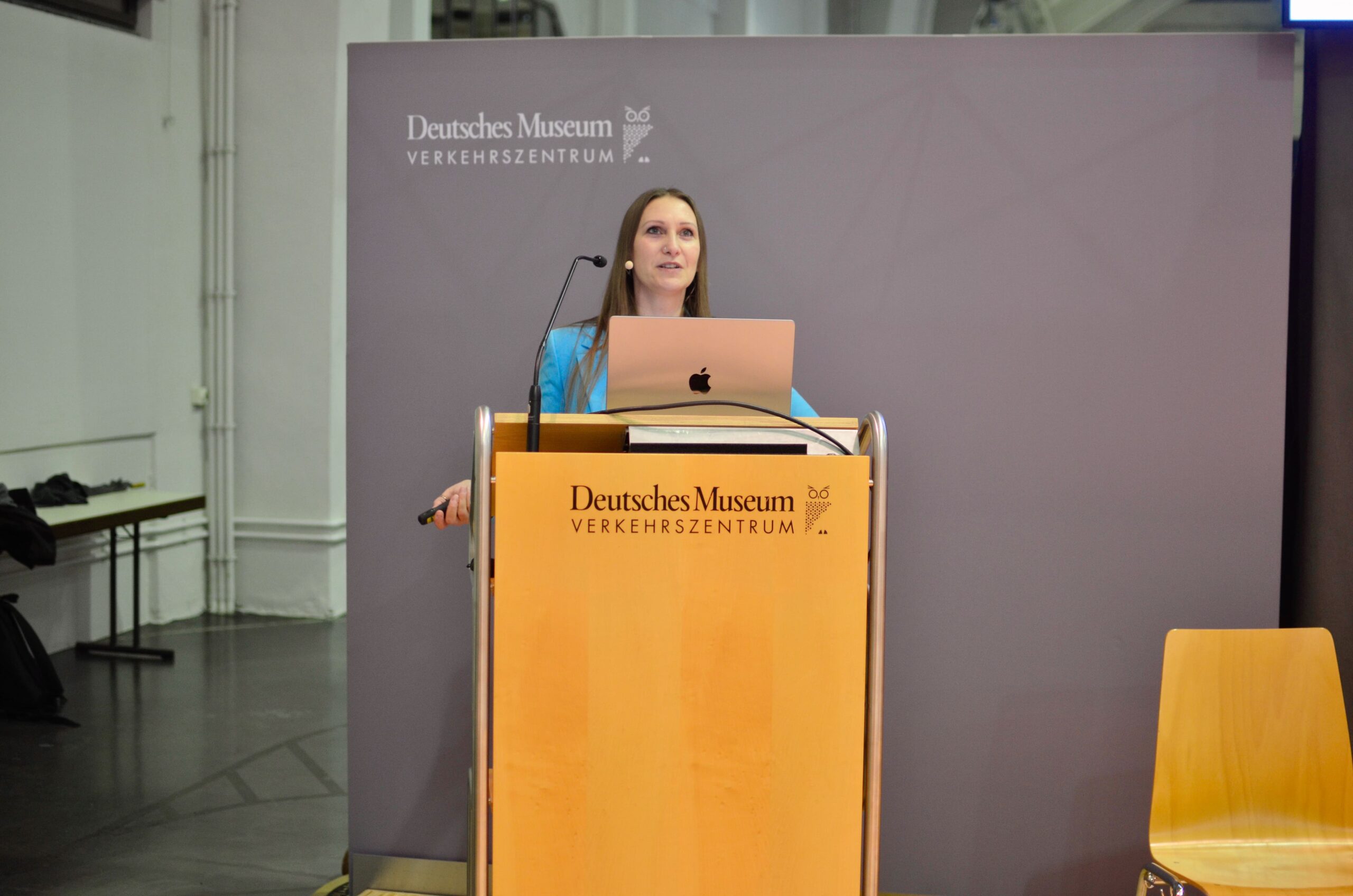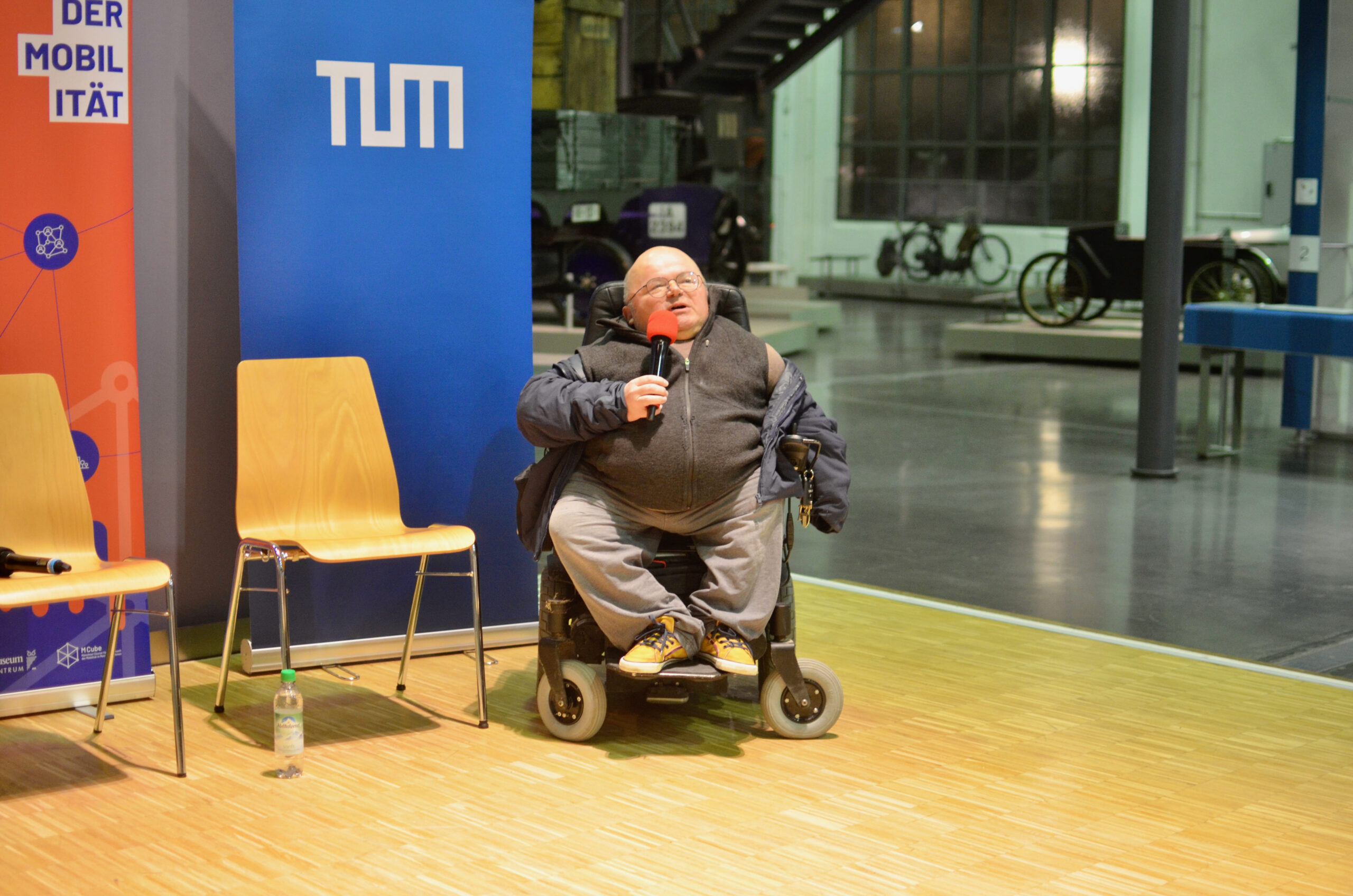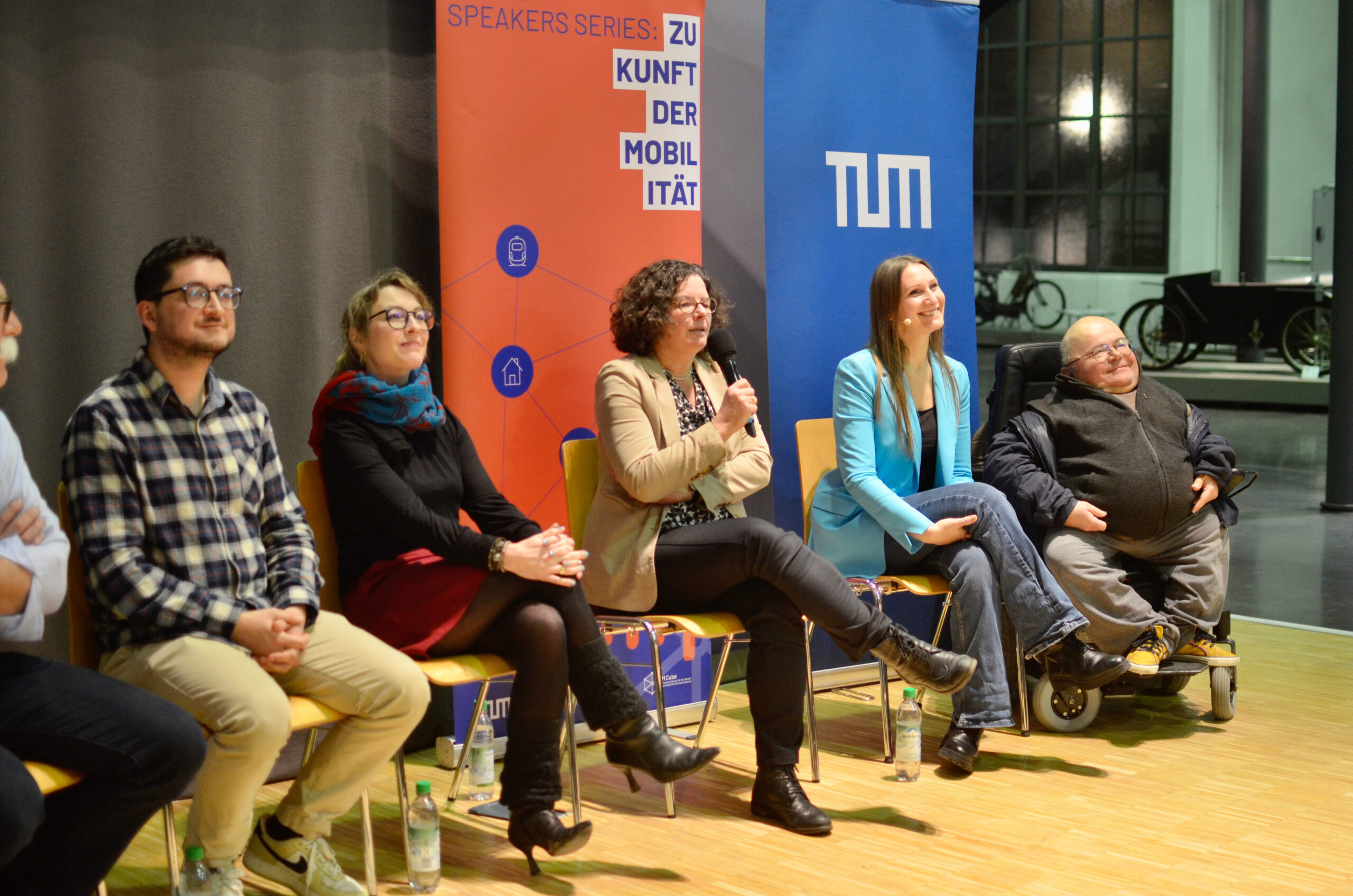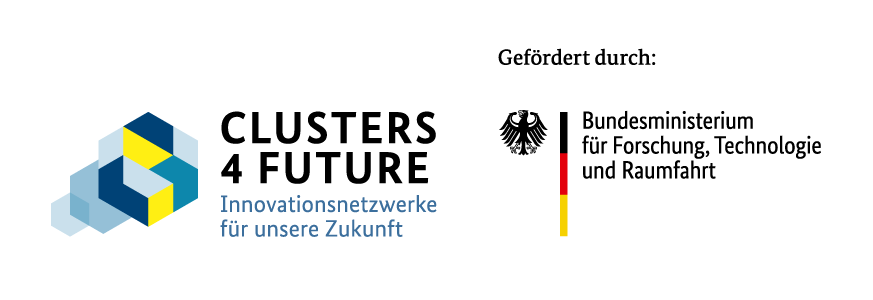In these times of groundbreaking technological developments, from artificial intelligence to innovations in mobility such as autonomous driving and sharing services, the discourse often focuses too one-sidedly on technical aspects and neglects the possibility of shaping these innovations in a socially just way from the outset. This raises the central question: How can we develop technologies that take social impacts into account from the outset?
This topic was the focus of the MCube Speaker Series "Future of Mobility" on February 22, 2024 at the Deutsches Museum Verkehrszentrum with almost 100 guests interested in mobility: "Mobility (in)justice - Why mobility must not only be designed technically in the future.
The brand new MCube mobility (in)equity atlas was presented here for the first time. Find out more about this innovation tool and the highlights of the evening here:
Dr. Ines Kawgan-Kagan: Gender equality must not be a marginal issue!
Dr. Ines Kawgan-Kagan - Senior Mobility & Gender Expert from the AEM Institute in Berlin emphasized the need to integrate the female perspective into mobility planning, which is traditionally based on the mobility pattern of the full-time working man. This model neglects the complex and multi-layered mobility needs of women, who not only often work part-time, but also bear the main burden of care work. This double burden leads to a network of diverse routes and destinations that is not taken into account in current mobility planning.
In addition, she made it clear that women's financial capabilities, their patterns of transportation use and specific safety needs differ from current planning assumptions. This discrepancy underlines the urgent need to design mobility services in a gender-equitable way by including other factors beyond gender, such as age, marital status, income and place of residence, in order to ensure comprehensive inclusion - a point that was also emphasized by Oswald Utz, the representative for people with disabilities of the City of Munich, in his contribution to the discussion.

Oswald Utz - Inclusion in public spaces
"How many of you have friends with disabilities?" With this introductory question, Oswald Utz, Disability Commissioner of the City of Munich, illustrated why this group is often forgotten in planning. By sharing his personal experiences, Utz illustrated how mobility planning often ignores the specific needs of people with disabilities. He made an urgent plea for a more inclusive design of public transportation and infrastructure to improve accessibility for all. Utz explained that taking into account the needs of people with disabilities can have far-reaching positive effects that also benefit other population groups. As an example, he cited longer stops on the subway, which not only make life easier for people with disabilities, but also for older people or parents with baby carriages.

David Duran and Dr. Jessica Le Bris - Practical paths to mobility justice
The next speakers of the evening were Dr. David Duran and Dr. Jessica Le Bris from the MCube innovation project MGeM, who presented how they are pursuing the goal of not only researching mobility injustice in theory, but also improving life in the Munich metropolitan region for everyone through practical solutions. With the mobility (in)justice atlas and the pilot project at Piusplatz, they show where there is a lack of fair mobility and how targeted measures can close these gaps. Politicians and urban planners can use the findings from the MGeM project to develop inclusive mobility concepts.
Mobility (in)equity atlas: uncovering inequalities
A key tool in her research is the Mobility (in)justice atlas. This geodata-based tool visualizes inequalities in mobility provision at the neighbourhood level in cities (initially in Munich) by using urban data and survey results to show how different access to public transport and basic services is for different population groups.
Piusplatz pilot project: measures for a vibrant neighborhoodD
he team has launched a pilot project at Piusplatz, a neighborhood with great social and cultural diversity. In the initial phase, the needs of local residents were recorded through dialog formats such as pop-up campaigns and walks. Based on these insights Measures These range from additional seating to sports facilities to improve social participation and quality of life.
Microlino: today's vehicles are too big, too heavy and often too expensive
The inputs were concluded by Johann Sachmann from Microlino. With the aim of going beyond the "last mile" solution and addressing urban mobility needs holistically, Microlino presents an answer to the criticisms of conventional urban vehicles: too big, too heavy and often too expensive. The Microlino, as Micro Mobility AG's "biggest little product", is a compact, 2.52-meter-long cabin scooter for two people that, with its minimalist electric drive, is not only a practical but also a fairer alternative in urban areas.
Conclusion: A holistic view of the future of mobility
The speakers' discussions and inputs make it clear that "mobility must not only be designed technically". They make it clear how important it is to consider a broad spectrum of perspectives and needs - from gender equality and accessibility to social participation and adaptation to urban spaces - in order to make mobility fairer, more accessible and more sustainable.
In the panel discussion, the speakers joined Silke Buchberger from the City of Munich and the audience to discuss how we can move beyond the technological approach and address people's real needs more effectively. Both economic perspectives and political challenges were highlighted, showing how different interests can influence the implementation of mobility justice.
It is necessary to think and design mobility concepts holistically in order to create a fair, accessible and sustainable future of mobility.

Thanks also to Matthias Grundei for the pictures.
____
"The future of mobility" is a series of lectures by MCube - Munich Cluster for the future of Mobility in Metropolitan Regions, Technical University of Munich, openLAB Urban Mobility and the Deutsches Museum Verkehrszentrum.
Together - Make it possible
How can mobility data and simulations make cities more liveable - and make change visible and tangible?
The MCube Consulting study shows how the Olympic Games could have a sustainable impact on Munich in terms of sport, society and the environment - something that has already been picked up on by many media outlets.
Munich is considering an Olympic bid - our study shows what opportunities and challenges the Games could bring for the economy, environment and society.
How do we want to move tomorrow? This question was the focus of the Citizens Lab at Marienplatz for six days.
The visual utopian Jan Kamensky presented his latest vision in cooperation with the Munich S-Bahn.
Carolin Zimmer from the Chair of Settlement Structure and Transport Planning and Sebastian Preiß from the Hans Sauer Foundation explain in an interview what the project has achieved and what makes it special.
Major award for a strong team: MCube Consulting receives the Innovation Award of the City of Munich - for a solution that reduces administrative workload, improves security and shows how research enables real change.
If Munich bids for the Olympics again, it will not do so arbitrarily - but with vision, attitude and a clear plan.
MCube had its own stand at the trade fair and brought together over 100 mobility pioneers at the "Bridging City Innovation Ecosystems" event above the rooftops of Barcelona.
What does the bus of tomorrow need to look like to convince as many people as possible to change buses voluntarily?
No results available

What is MOSAIQ?
Imagine something: There is more space for people. The streets have more trees and plants. Everyone can get around better. That's how your Schwabing-West district could be in the future. How would you like your district to be? We want to talk to you about it!
The project is called MOSAIQ. MOSAIQ is a research∙project. MOSAIQ means: Mobility and urban climate in the future city∙part. The Technical University of Munich is leading the project.
What is MOSAIQ about?
MOSAIQ wants to make the streets in the city∙part more beautiful. People should feel comfortable there. There should be more space. For meetings and plants, for example. You can help decide what is tried out in the Stadt∙teil. The ideas come from you. Some ideas will be tried out on the streets for a certain period of time.
The aim of MOSAIQ is to make urban districts good places to live.
At the same time, the climate in the city should improve. And people should be able to move around the city easily.
What is happening in the district?